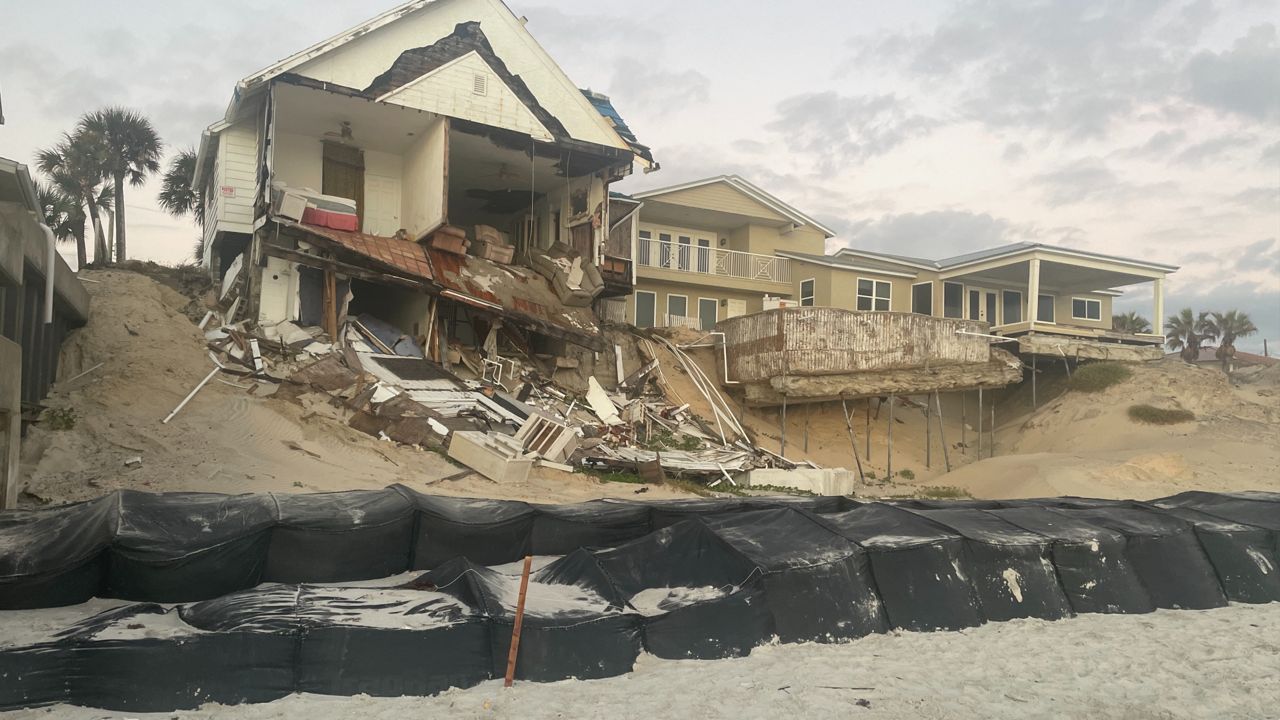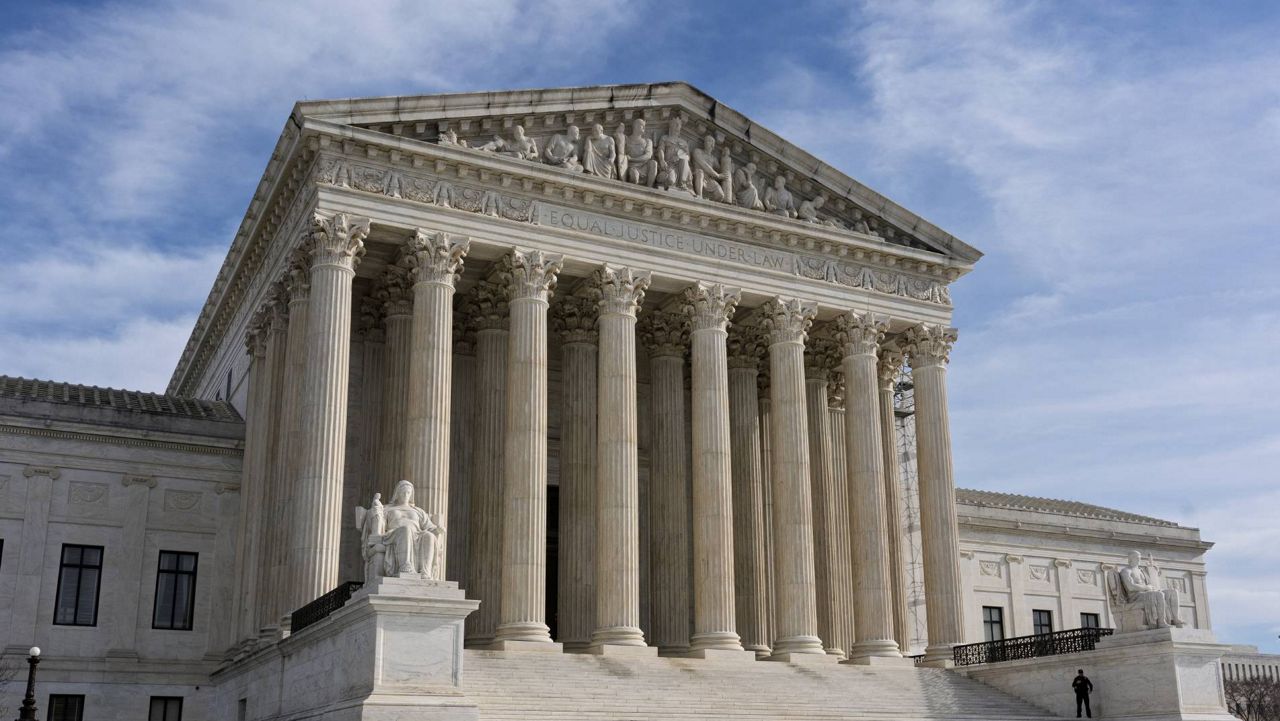Florida Gov. Ron DeSantis announced he planned to sign two bills covering weather modification and fluoride use in public drinking water, and several high-profile bills failed in Tallahassee this session.
Lawmakers prepare to tackle state budget in extended session
On Tuesday, Florida Gov. Ron DeSantis announced he planned to sign two bills, CS 56, Geoengineering and Weather Modification Activities, and CS 700 Department of Agriculture and Consumer Services, into law.
State Sen. Ileana Garcia appeared to faint while delivering remarks at the signing event, which appeared to delay the bills' signing.
One seeks to ban activities classified as weather modification, and the other is a piece of legislation that will restrict fluoride use in water sources throughout the state, among other farm-related items.
Governor Ron DeSantis Celebrates Measures to Keep Florida Free https://t.co/T8fE8STsRf
— Ron DeSantis (@GovRonDeSantis) May 6, 2025
Weather Modification Ban
The weather modification bill was first introduced in November of last year, and it passed the Florida Senate 28 to 9. It then moved on to the Florida House, where it passed 82 to 28.
The bill creates a report line, where Floridians may log and document aerial sightings to the state. Thereafter, the Florida Department of Environmental Protection is tasked with investigating.
Miami Republican State Sen. Illeana Garcia, the bill sponsor, said she proposed the bill after receiving complaints from her constituents.
The Florida Senate approved the bill Thursday with a near party-line vote. Florida Democrats largely criticized the bill as conspiratorial and also questioned the feasibility of the state to investigate such reports.
"I’m afraid that we're legislating on some of these tinfoil theories,” said Boca Raton Democratic State Sen. Tina Polsky.
The bill specifically prohibits the release of chemicals into the sky with the intention of manipulating the temperature, weather, climate or sunlight.
“People got a lot of kooky ideas that they can get in and put things in the atmosphere to block the sun and save us from climate change,” said DeSantis on social media. “We’re not playing that game in Florida.”
According to the U.S. Office of Government Accountability, roughly 10 U.S. states have banned or are attempting to ban weather modification. The National Oceanic and Atmospheric Administration stated the organization does not participate in weather modification, and notes that with the exception of cloud seeding, the technology to do that does not exist in the first place.
Statewide Fluoride Ban
The Senate version of the fluoride bill was filed in February and passed the Senate in April with a vote of 27-9. The proposal then went to the Florida House, where it was approved 88-27 later that month.
An analysis of the proposal provided by the Committee on Fiscal Policy said the legislation changes the legal definition of "water quality additive" and related prohibited acts.
Despite the proposal's widespread support in the Legislature, not everyone is supportive of the plan.
The bill’s critics argue the issue of fluoride is better decided by local governments rather than the state. They also note the potential health benefits.
“It should be something that local authorities should be able to determine without preemption, because they might have a large portion of citizens who need that additional assistance,” said Florida League of Women Voters Co-President Cecile School.
“No government entity has the right to medicate us against our will,” said Pueschel Schneier, an Escambia County resident who spoke out against water additives recently from inside the Florida Capitol. “They have no right to medicate an entire population because they believe that maybe a small portion of the population would benefit from it.”
Florida Surgeon General Joseph Ladapo is among the critics of fluoride in water. He spoke against the process at a press conference in Winter Haven in November 2024. A city east of Tampa, Winter Haven voted in November to stop adding fluoride to water.
“In this day and age, with the additional sources of fluoride that people have access to, it is public health malpractice to continue adding fluoride to community water systems that pregnant women and children have access to,” said Ladapo.
The American Dental Association, though, has blasted Ladapo's recommendation, caling it "misinformed and dangerous."
"The Florida Dental Association strongly reinforces that fluoridation is a naturally occurring mineral, not a medication, that is already present in the water in many parts of the country, including Florida. Water fluoridation has been researched for more than 80 years, and overwhelming, credible scientific evidence consistently indicates that fluoridation of community water supplies is safe and effective at preventing and repairing tooth decay.
The Florida Dental Association and dentists across the state have strongly advocated for the continuation of local governments' authority to provide water fluoridation in their communities. Adding optimal amounts of fluoride into our community water supplies has been proven to prevent at least 25% of tooth decay in children and adults, reducing the need for costly dental treatments," Florida Dental Association President Dr. Jeff Ottley said.
The new law will take effect on July 1.
Several proposed bills died this legislative session
Lawmakers in Tallahassee passed about 230 bills this legislative session, but there are a few bills that didn’t pass.
The “Higher Education” bill would have limited the governor’s power in picking university and college presidents.
In 2022, Florida Gov. Ron DeSantis signed a law making the application process confidential. The proposed bill would have removed the public records exemption and allowed more oversight in the hiring process.
There will also be no changes to E-Verify.
That’s the program where employers check if potential employees are eligible to work in the U.S. Currently, only companies with at least 25 employees are required to use the program.
The House passed a bill requiring all employers to use it, but it died in the Senate.
One property insurance reform bill called for transparency from insurance companies, including more details on their rate filings.
That also did not pass.
Finally, there were two bills that would have put tighter restrictions on hemp products, neither made it across the finish line.
One would have required an establishment that sells drinks infused with THC to have a liquor license.
And another would’ve put a 60% tax on certain hemp-based products.








